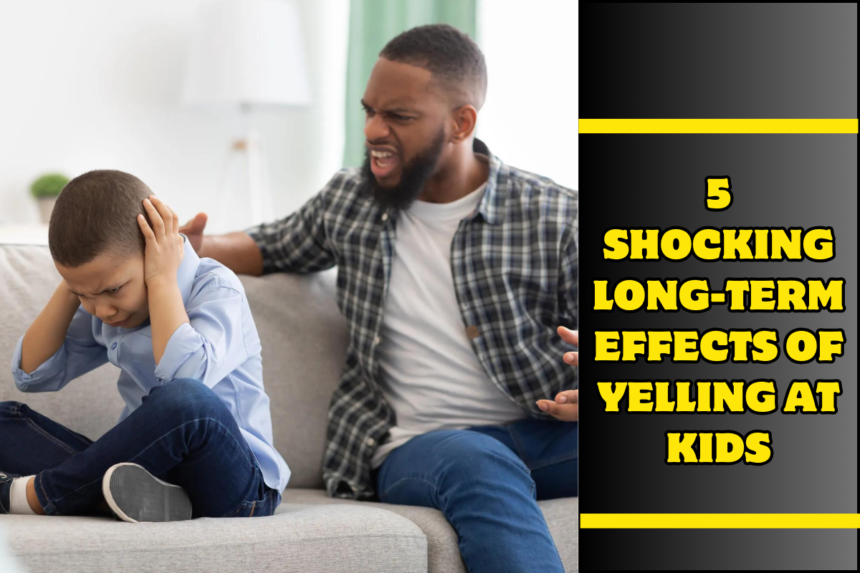5 Shocking Long-Term Effects of Yelling at Kids:- It may seem like a quick way to deal with bad behavior or show anger, but yelling at kids can be very bad for them in the long run. Verbal aggression has effects that last a long time and affect a child’s growth, mental health, and relationships well into adulthood.
5 Shocking Long-Term Effects of Yelling at Kids
There are five shocking long-term effects of yelling at kids that shock me:
1. Increased Risk of Anxiety and Depression
Repeatedly hearing yelling can make a child much more likely to develop anxiety and sadness. Kids can’t control their emotions and their stress response systems change when they are yelled at a lot. As the kid learns to connect normal feelings like fear and uncertainty with bad things, this can cause long-term anxiety and depression. Studies have shown that kids who are yelled at a lot may be more likely to have mood disorders as adults. This is because the stress affects their brain growth over time.
2. Impaired Self-Esteem and Self-Worth
When you yell at your child all the time, it can hurt their self-esteem and sense of worth. Children who are often scolded and criticized harshly may absorb these negative messages, which can make them feel like they are not good enough or worthy. Low self-esteem can follow a person into adulthood, lowering their confidence, making it harder for them to make good relationships, and generally lowering their quality of life. Adults who were yelled at as kids often have trouble forgiving themselves and standing up for themselves in personal and business settings.
Also See:- 5 Simple Bee Sting Home Remedies
3. Disrupted Cognitive Development
Hearing yelling over and over again can hurt a child’s brain growth. The stress and mental turmoil that yelling can cause can make it hard for a child to concentrate, learn, and do well in school. Long-term stress changes parts of the brain like the hippocampus, which is important for remembering and learning. Because of this, kids who hear a lot of yelling may have trouble focusing, solving problems, and doing well in school, which can affect their educational and career chances for a long time.
4. Formation of Aggressive Behaviors
When parents yell at their kids a lot, those kids are more likely to act aggressively themselves. When they hear or see violent behavior, they might copy it, which could make them yell and use other forms of verbal aggression with their friends and family. This way of acting can keep relationships in a loop of hostility and conflict. Making aggression seem normal as a way to solve problems can make it harder for them to deal with others in a healthy, respectful way throughout their lives.
5. Strained Parent-Child Relationships
Parents and kids can get very angry with each other when they yell, which can make relationships worse and communication break down. Kids can mentally distance themselves from their parents when they yell a lot because it makes them afraid and angry. This can make them less close and trusting. As they get older, this tense relationship may make them less likely to ask for help or talk to their parents about their problems, which could lead to more relationship problems and a lack of mental support.
Parents should use positive and helpful methods when dealing with their children because yelling at them can have long-lasting effects. Getting into good communication habits and dealing with disagreements calmly can help create a more supportive environment that supports mental health and growth.
